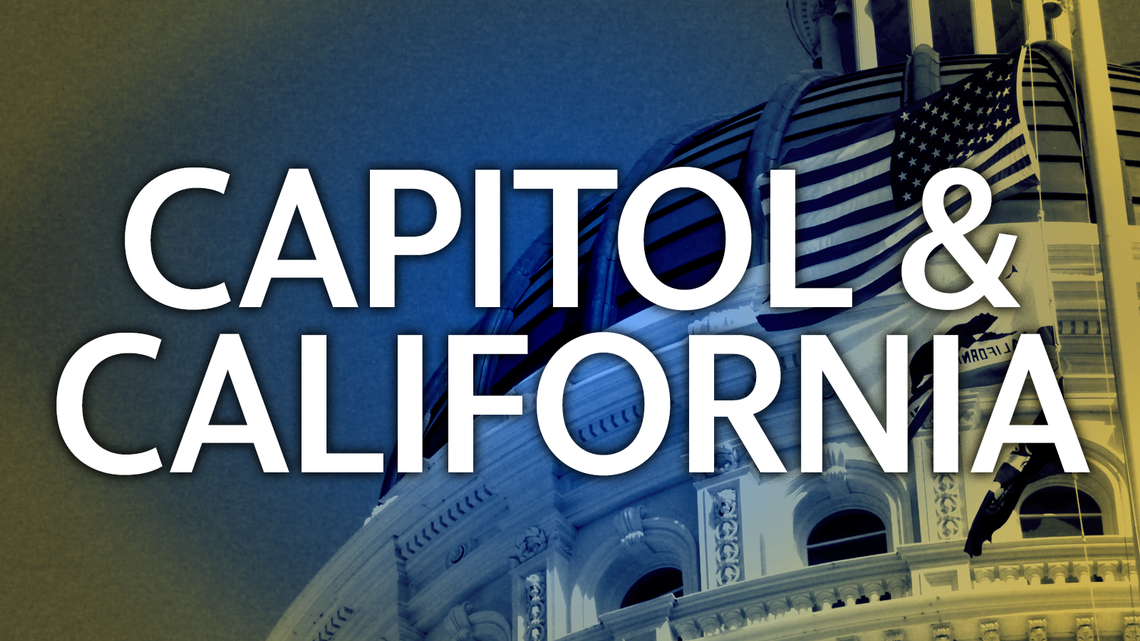Bill to make Google & Facebook pay California publishers for news reemerges with new language

Good morning and welcome to the A.M. Alert!
AB 886 REEMERGES WITH AMENDED LANGUAGE
After nearly a year of lying dormant, amendments are breathing new life into AB 886, the bill to make tech companies like Google and Meta pay California news outlets for content linked on tech platforms.
Last year, Assemblywoman Buffy Wicks, D-Oakland, requested that the “California Journalism Preservation Act” be held for consideration after it met with significant headwinds from the tech sector.
Meta has warned that it will remove California news from its Facebook and Instagram platforms if AB 886 becomes law, much as it did when Canada passed a similar law. And Google already has begun experimenting with removing California news from its search platform.
So what’s different?
To begin with, the bill now gives the tech platforms the opportunity to pay into a fund rather than have the matter go through arbitration.
The bill also changes how the money is parceled out. Rather than basing payouts on how many articles are displayed to California residents, the bill now bases those payments on the number of California journalists employed, similar to the Canadian law. The bill also directs that payouts should be made for reporters who are employed for the specific purpose of producing California news.
One of the criticisms of AB 886 is that the bill would predominantly benefit major media outlets at the expense of small news organizations, including many ethnic media outlets.
To address that concern, AB 886 has been amended to steer 1% of the total funds collected exclusively to small publishers — in addition to the money they already otherwise would receive. And while the bill requires large publishers to spend 70% of these funds on journalists and other staff, for publications with five or fewer employees that number is reduced to 50%.
Small publications also would be allowed to count part-time employees and freelancers as new employees for the purposes of the bill.
The bill currently sits in the Senate Judiciary Committee. As of Monday afternoon, it did not have a hearing scheduled.
Full disclosure: AB 886 is supported by The Sacramento Bee’s parent company, McClatchy, which also publishes The Fresno Bee, The Modesto Bee, San Luis Obispo Tribune and Merced Sun-Star.
AB 1955 HEADED TO THE SENATE FLOOR
After a relatively brief Senate Appropriations Committee hearing, AB 1955 is bound for the Senate floor, where it is expected to pass on a party-line vote.
The bill would ban California school districts from enacting parental notification policies, described by critics as “forced outings” because they result in transgender or gender-nonconforming children being “outed” to their parents without their permission.
Since last summer, several school districts across the state have passed such policies, some of which are tied up in litigation by the state Department of Justice, which has argued that the policies violate California student privacy and nondiscrimination laws.
Monday’s Appropriations Committee hearing was fairly short.
The bill author, Assemblyman Chris Ward, D-San Diego, presented the legislation. Superintendent of Public Instruction Tony Thurmond, a Democrat who is running for governor in 2026, testified in support, saying the bill would have only a “nominal” cost to the California Department of Education.
Thurmond said the bill calls for no new funding for Department of Education positions and no new hires.
But that’s not the whole story, argued the opposition witnesses. They warned that “millions” of angry parents could tie the state up in litigation if AB 1955 becomes law. That point resonated with Sen. Kelly Seyarto, R-Murrieta, who told Ward, “You can almost be assured that there will be numerous lawsuits.”
Ward responded that “litigation is speculative” and that he crafted AB 1955 after seeing how the courts have handled the various existing legal challenges. He added that inaction also could be very expensive. Chino Valley Unified School District, the first district to enact such a policy, has already spent more than half a million dollars in legal expenses defending that policy in court, Ward said.
Sen. Aisha Wahab, D-Hayward, said there is a lot of “misinformation” circulating about the bill. She moved to have the legislation sent to the Senate floor.
Senate Minority Leader Brian Jones, R-Santee, attempted to introduce a substitute motion to send AB 1955 to the committee’s “suspense file,” where controversial bills often go to die a quiet death. However, that motion failed. The bill then was passed to the Senate floor on a party-line vote.
QUOTE OF THE DAY
“The nation’s most-populous, wealthy, innovative, diverse, and internationally touristed state needs more significant formal influence on global policy decisions made in Washington, D.C. America needs to hear and heed the perspectives of its economically most-vibrant and globalized state of the union. The U.S. Senate marginalizes or ignores California, the world’s largest minority-majority democracy, at its peril.”
— California Second Gentleman Markos Kounalakis, calling for better California representation in the U.S. Senate, in a column for Washington Monthly. Kounalakis’ husband, Lt. Gov. Eleni Kounalakis, a Democrat, is running for governor in 2026.
Best of The Bee:
Sacramento Pride celebrates LGBTQ progress. But some say movement hasn’t ‘come far enough,’ via Lindsey Holden.
California yearbook story calls Israel attacks genocide. Complaints, apology & backlash follow, via Jennah Pendleton.
‘California belongs to Jesus’: Christian rally in Sacramento draws thousands during Pride, via Jenevieve Hatch and Acsah Lemma.
As Newsom battles big oil, California approves drilling permits for new Central Valley wells, via Ari Plachta.
Sacramento DA files new complaint against city in homeless lawsuit. Will it be scaled back? Via Theresa Clift.
California Democrats threaten to repeal retail theft bills over Prop. 47 changes, angering GOP, via Lindsey Holden.


